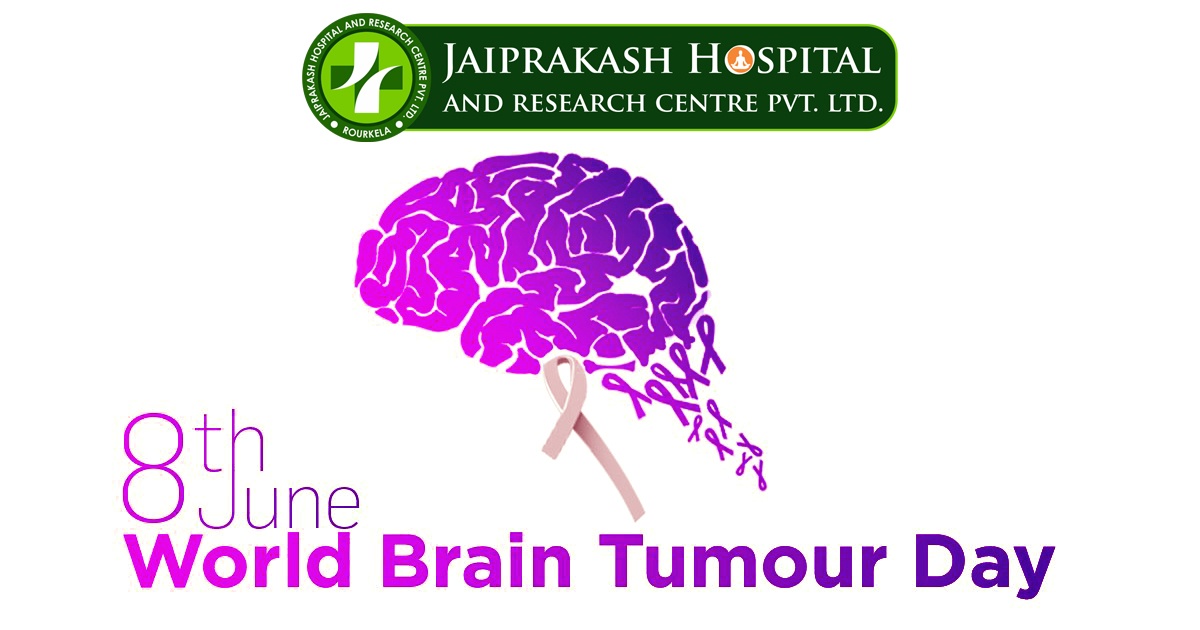5 Reasons to Celebrate World Brain Tumor Day
World Brain Tumor Day is an annual celebration observed on the 8th of June. Thanks to the German Brain Tumor Association, who undertook the initiative of bringing awareness about brain tumor amongst the general masses.
The brain tumor is one of those uncommon ailments that can be death-dealing. However, despite being an atypical condition overall, brain tumor stands as the 10th most common tumor in India alone. Worldwide, it affects about 2 per cent of people.
So, what causes this lethal ailment, and what can be done to control it? Read on to know all this and more.
What are the Five Reasons to Celebrate World Brain Tumor Day?
Getting diagnosed with a brain tumor is no pleasant thing. The five important reasons one should participate in the event are to:
- Create awareness amongst people who don’t know about brain tumor and caution them to go for regular screenings for brain tumor detection.
- Educate others (and learn from them as well) about the severity of this life-threatening condition.
- Be a part of the bigger purpose to come up with effective and affordable treatment plans for the ailment.
- Support the ones suffering and the ones treated successfully.
- Show appreciation towards the people who fight tumor cancer each day of their lives, and celebrate their nearly superhuman willpower.
What is Brain Tumor?
Brain tumor is a condition in which an abnormal tissue growth in the brain causes impairment of brain function. The brain tumor can be malignant (cancerous) or benign (non-cancerous). Further, there are primary brain tumors and secondary brain tumors.
Primary brain tumors: These tumors start in the brain and grow on the grades from 1 to 4 depending upon its location and how fast the cells multiply and spread to other organs. That means the low-grade tumor grows slowly, and the high-grade one grows faster.
Secondary brain tumors: These are cancerous tumors that are spread to the brain from another part of the body. This case is more common in people suffering from conditions such as leukemia, lung cancer, or breast cancer, to name a few.
What Causes Brain Tumor?
There is no exact cause per se that induces brain tumor, but there are certain conditions that increase the risk of its occurrence. These conditions include:
- Hereditary genetic factors
- Receiving treatment with ionizing radiation for brain or head
- Serious head injuries (traumatic brain injury)
- Exposure to chemicals such as pesticides, rubber, solvents, etc.
Although brain tumor can affect people of any age group, children younger than 10 years of age and adults over 50 years of age get impacted more usually.
What are the Symptoms?
The symptoms of this condition may be non-specific, as these vary depending on the position of the tumor in the brain. The general symptoms, however, include:
- Severe headaches (occurrence commonly noticed in the morning)
- Seizures
- Perpetual nausea and vomiting and/or fatigue
- Memory problems
- Drowsiness
One may experience the following symptoms too that may particularly affect around the tumor location:
- Pressure near the tumor
- Difficulty with walking or fine motor skills (tumor in the cerebellum)
- Speech deficits and altered mental status (tumor in the temporal lobe of the cerebrum)
- Facial numbness and/or difficulty swallowing (tumor in brain stem)
- Vision problems (tumor in the temporal lobe of the cerebrum)
How is it Diagnosed?
Given the non-specific spectrum of symptoms of this condition, an early diagnosis from an able neurologist may aid in managing it timely. The doctor may advise for the following to diagnose a brain tumor:
- Magnetic Resonance Imaging (MRI)
- CT Scan
- Positron emission tomography (PET) or PET-CT scan
- Cerebral angiogram (an x-ray displaying the arteries in the brain)
- Neurocognitive assessment (tests that could be conducted using paper-and-pencil or computers)
How can it be Treated?
Treatment recommendations depend on various factors, namely, the type of tumor, its size and grade, any potential side-effects on the patients’ health, and so on. However, apart from certain medications to manage the symptoms, the main treatment of the condition involves surgery into which the tumor is removed safely with microsurgical techniques.
Other treatment options include:
- Radiotherapy
- Chemotherapy
- Immunotherapy
How to Cope with the Treatment?
Health conditions as this are mostly strenuous for the bearer and their family, caregivers in terms of their social life, physical and mental wellbeing, emotions, and financial aspects. Coping with it thus becomes anything but easy. So, it is important to:
- Talk to the doctor about any side-effects, physical, emotional or social.
- Join support groups (or create if there aren’t any around) to know and share about managing the ailment.
- Go for counselling that can help reduce some stress.
- Keep a track of any side-effects of the treatment and inform the doctor regularly.
Despite it being an annual affair, not many people know about brain tumor. There is much more to this day than paying tribute to the ones suffering. So, create awareness and spread awareness about this not-so-common condition, as awareness is prevention.
Dr. Satya Bhusan Senapati,
MBBS, MS, MCH (Neuro Surgery),
Specialized in Brain & Spine Surgery, Micro Neuro Surgery & Cerebro Vascular Surgery.








